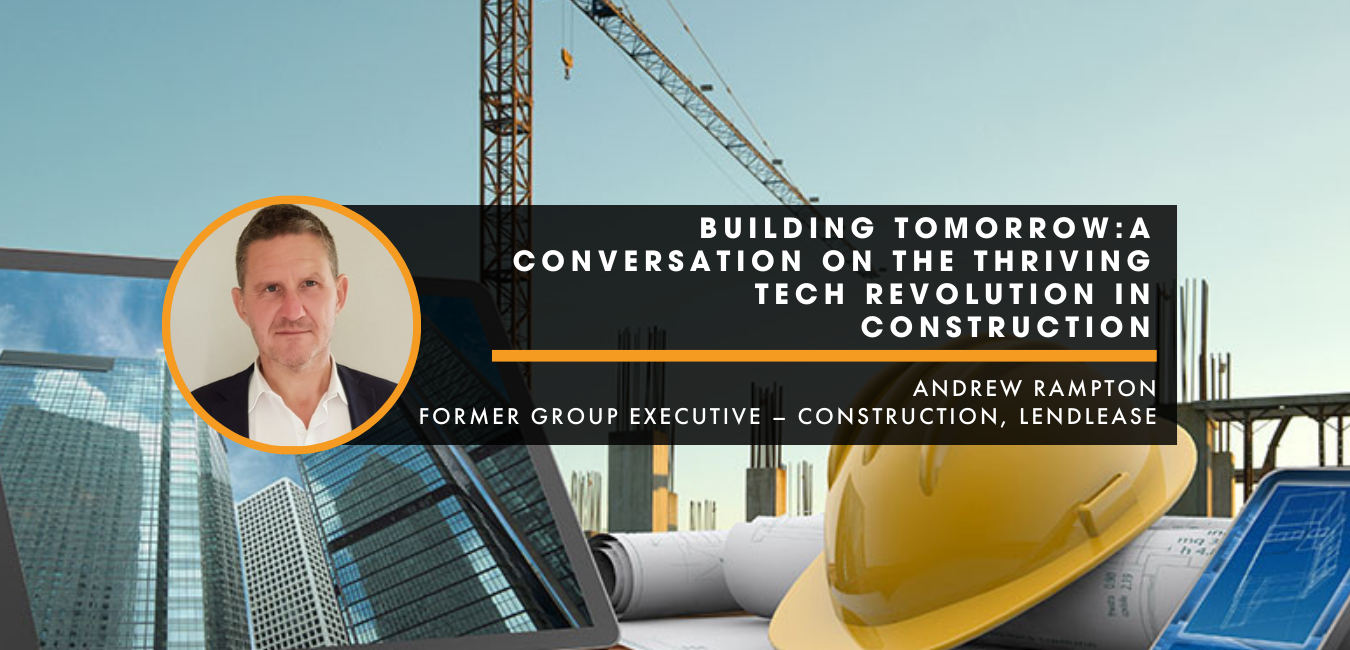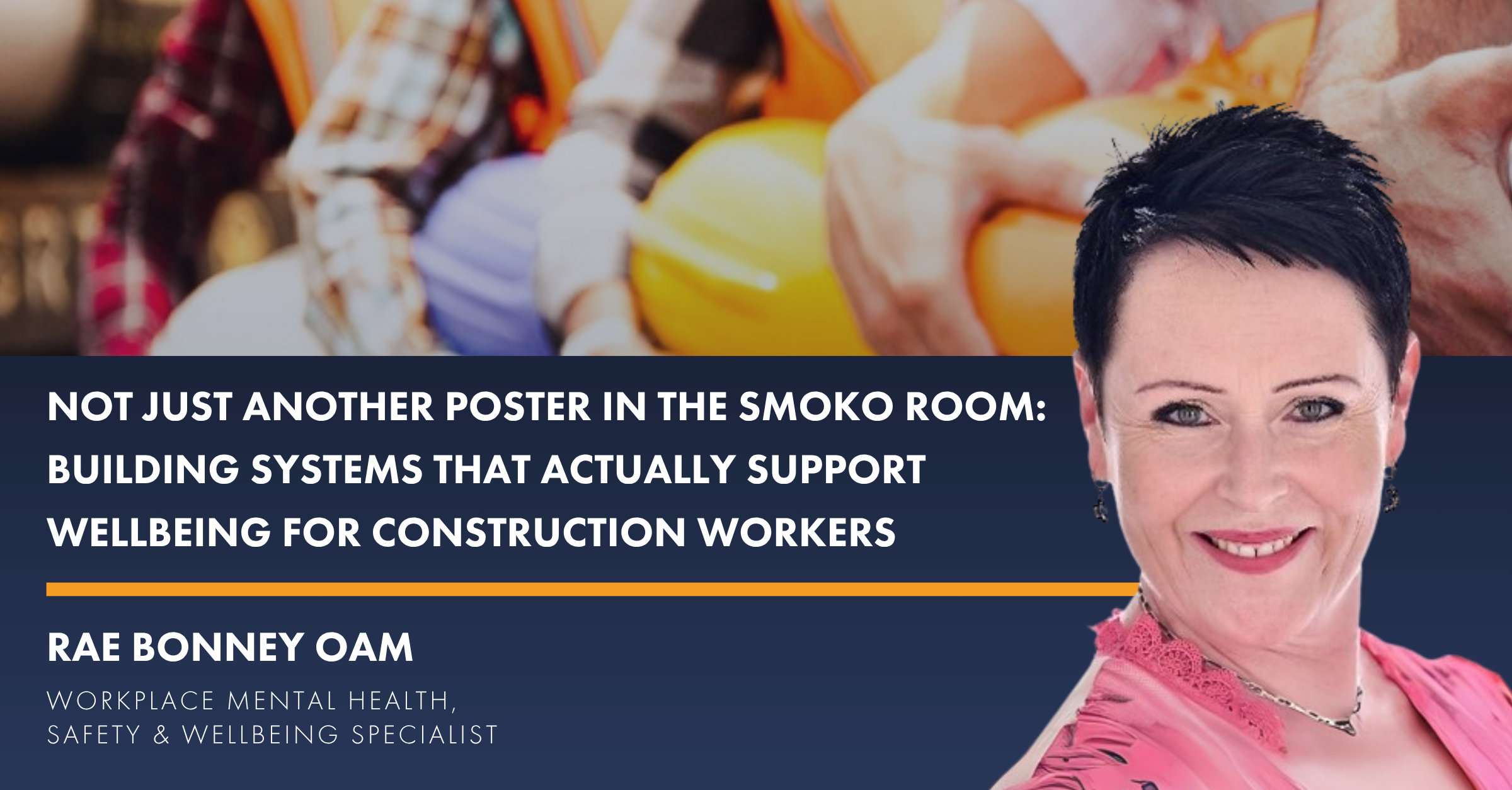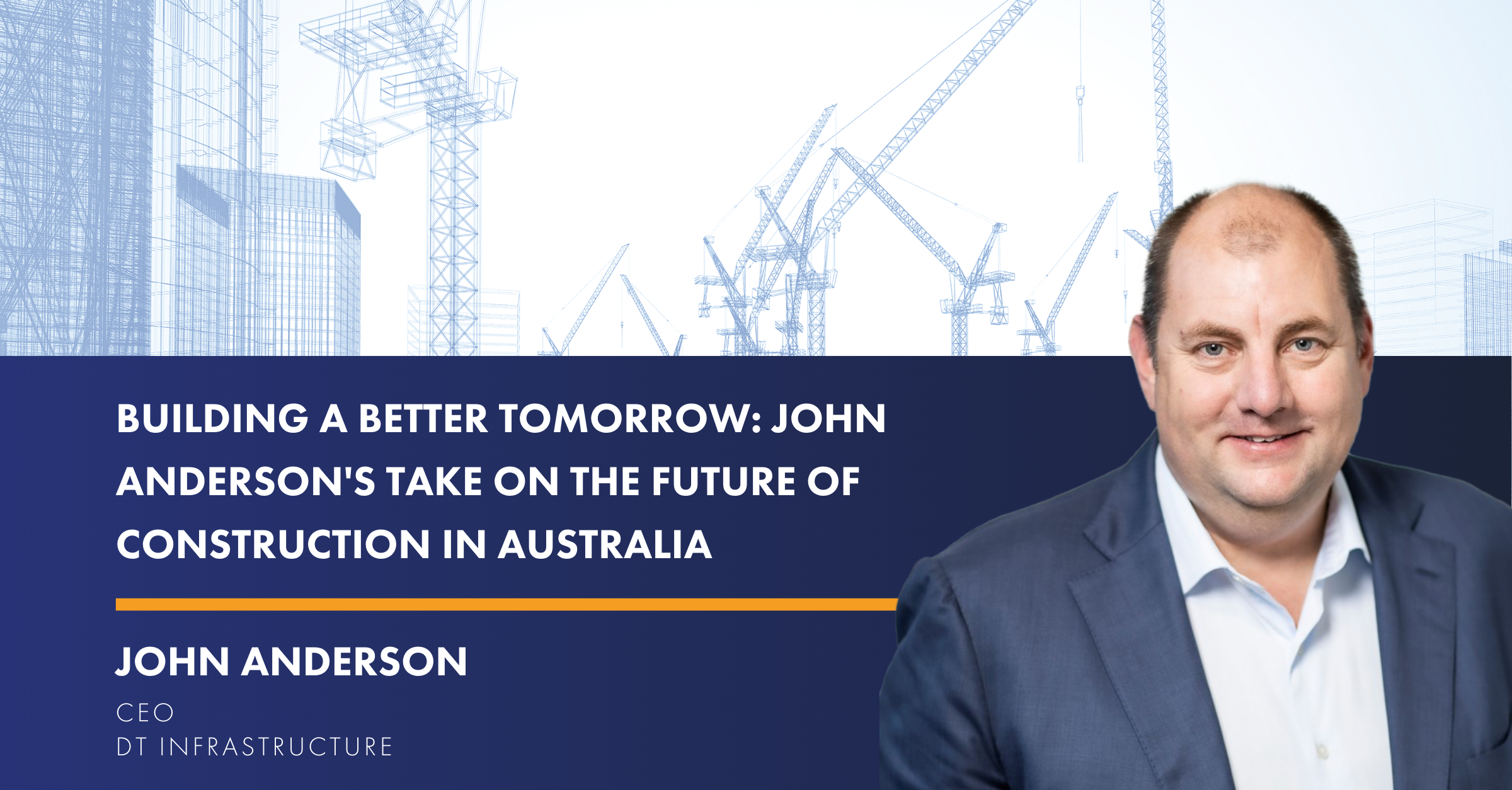FuturePlace Interview Spotlight, Andrew Rampton
FuturePlace recently interviewed Andrew Rampton, Former Group Executive – Construction at Lendlease, where he shared his perspective on the most promising technologies, the unstoppable evolution of ConTech, the power of collaboration between contractors, and how technology can address industry challenges. Moreover, he discussed the exciting prospects of digital transformation, particularly the potential of Generative AI in reshaping the construction landscape. Join him at FCON-Tech Construction Technology Summit to discover the future of construction through the eyes of an industry visionary.
FuturePlace: The tech innovation occurring across construction has been phenomenal. What technologies most excite you and why?
Andrew Rampton: I think there are a number of technologies that have been around for a while and which we now speak of in everyday terms, but which haven’t yet become mainstream and as a result, have not proven their value. Things like Digital Twins. Everyone now knows what they are and the opportunities they represent but we have yet to see widespread adoption and, hence, fulfillment of that opportunity. Digital twins offer us the possibility of understanding the context of the built form within its environment in a very broad sense and that will translate into better buildings, more efficient use of resources and better outcomes for society; but, accepting a few we discrete examples, we aren’t there yet. Another is generative design. The property industry is slave to the fabled ‘cycle’, ie the up-and-downs brought about by various economic factors. What excites me most about generative design is that it has the potential to break the cycle because it means things can be done at speed. We have the potential to do in days what the industry has previously taken months to do and if that means in future property developers and constructors can respond quicker, work faster and more efficiently, then the whole economic proposition of property development is different and we may be able to break free of broader economic influences – at least to some extent.
FuturePlace: How do you see the evolution of ConTech further shaping the industry?
Andrew Rampton: The first thing to say is that this evolution is unstoppable. Construction has been generally good at resisting change over the years but whilst we may argue that the adoption of ConTech hasn’t progressed as quickly as some may have forecast, we are seeing that change is happening and it will continue to happen. The industry does recognise the benefit of ConTech, so the discussion is about how and when to change; what are the right economic conditions to enable that change in an industry that struggles with low margins. Rather than this change being driven by the adoption of specific applications, I believe it will accelerate through our use and understanding of data. The industry now recognises the value of data and the insights that can be derived from the data that we already have access to. For many companies this will result in changes to how we work, the type of work we do, the customers we bid to, the partners we work with, who we buy things from, etc, all because we are now able – with greater clarity than previously – to see the conditions that deliver successful outcomes. Better understanding of what works best will be the catalyst for accelerating change in the industry.
FuturePlace: Do you see collaboration between contractors (co-opetition) being transformational in its ability for the technologies being used by different companies on different projects being able to communicate better with each other?
Andrew Rampton: Greater collaboration is, I believe, essential to our future success. Construction is still a largely truculent industry, driven by long-held beliefs right across the value chain that competition delivers economic benefit. Our inherent processes set us against each other, and this breeds a mutual distrust that is ultimately anti-collaborative. New digital technologies provide us with an ability to share and collaborate to a degree greater than ever before, but whilst some of this opportunity is simply in being able to communicate easier and more efficiently, there are far greater benefits that can only be achieved as and when we change our culture and our contracting methods. Another challenge I see is the construction industry’s outdated views on IP, which has traditionally been centered on the designs we create. If we stick with that mentality today, then naturally we are going to be nervous about adopting technologies that enable greater sharing and collaboration on design – “I can’t share this because it’s my IP” will remain the pervasive attitude. I think in future IP is going to be about the way we analyse and interpret our data and use this to derive better ways of working. The sooner we change our attitudes to IP, the sooner we become more collaborative regardless of the technology we use.
FuturePlace: What challenges do you see in the industry and how may technology address these?
Andrew Rampton: As I’ve said above, the way the industry works today, particularly the way construction is procured, is our biggest challenge. We must find better methods for engaging the supply chain, better contracts and a more enlightened attitude to sharing and collaboration. Technology can undoubtedly help with this and over a number of years now we have been seeing new applications that offer the potential for improved communication and collaboration. However, I think data remains the key. As adoption increases of the technologies that allow us to interpret our data and irrefutably understand what is going on – where the inefficiencies lie, where the opportunities to improve exist – then hopefully this will drive a more sustained discussion across the industry about how we can do better.
One other challenge I think construction companies are facing is the proliferation of ConTech. It’s everywhere…there really is “an app for that”. The problem is, construction companies are not technology specialists and the sheer volume of technology options we have today makes it difficult for many companies to have confidence in the choices they make. For some, I’m sure this results in paralysis, ie they defer the choice and keep their traditional methods. Maybe, in the spirit of collaboration, we can start an industry-wide dialogue about which technologies work best…but then again that might be anti-competitive.
FuturePlace: What’s next in terms of Digital Transformation and what excites you about the future of construction technology?
Andrew Rampton: This might not be the most imaginative answer because it’s a current hot topic, but I’m really excited about Generative AI. It maintains my theme of data and insights being important in driving change across our industry and with Gen AI I see massive opportunity to interpret data and understand it in ways that we’ve not previously seen. The ability to understand ourselves and then communicate that clearly and succinctly, will enable companies to think about what they are trying to achieve and how. I’m confident these insights will force many companies to change their models, maybe even the sectors they work in, simply because they understand better what they’re good at and where they can make a difference. I’m also hopeful that once governments start using AI they will be able to better understand the good and not so good points about how the industry works today – backed up by data – and start a dialogue about how construction really can change to meet the challenges of the future.
FCON-TECH CONSTRUCTION TECHNOLOGY SUMMIT
Andrew will be speaking at the FCON-Tech Construction Technology Summit, taking place on 22nd November 2023 in Sydney.
This is the only dedicated event in the Australian market where tech decision makers and practitioners from across tier 1, 2 and 3 contractors can come together to discover the emerging technologies that will increase their productivity, deliver efficiencies, improve safety and profitability in a period of great uncertainty and disruption.
It will showcase real world case studies delivered by industry practitioners that will cover all the key considerations such as developing a technology roadmap, selecting the right partners, building internal capability and maximising the ROI of existing tools and systems.






